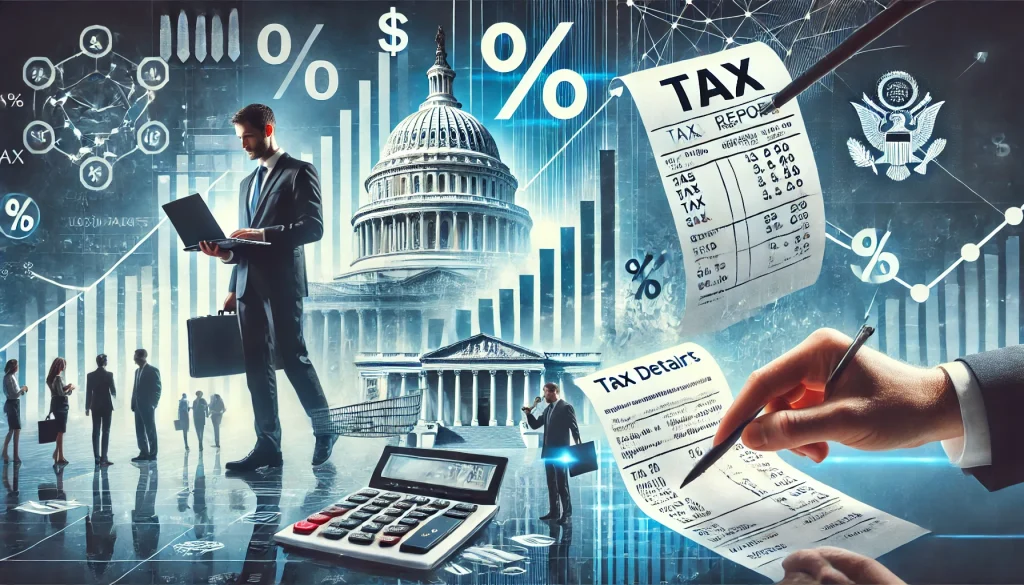Understanding the impact of US tax policies is essential for both investors and consumers. Recent changes in these policies can significantly influence financial decisions and economic behavior across various sectors. As tax regulations shift, stakeholders must remain informed to successfully navigate potential challenges and opportunities that arise. By exploring the current landscape, this article aims to provide a concise yet comprehensive insight into the evolving nature of fiscal policies in the United States.
US tax policies have undergone significant transformations over recent years, reflecting broader economic and political changes. Investors and consumers alike need to grasp how these adjustments impact their strategies and spending habits. By delving into recent reforms and their implications, this discussion highlights key areas affected by these fiscal shifts, offering readers a clearer understanding of how best to adapt.
Recent changes in US tax policies

In the past decade, notable shifts in US tax policies have reshaped the landscape, particularly concerning corporate tax rates, investment taxation, and consumer goods. Legislations such as the Tax Cuts and Jobs Act have dramatically altered how businesses and individuals approach financial planning. Such policy transformations aim to boost economic efficiency and competitiveness while ensuring fiscal sustainability.
Recent reforms have also sparked debates over the balance between attracting business investments and addressing fiscal deficits. Key changes involve reduced corporate tax rates, designed to stimulate economic activity, alongside adjustments in individual taxation like the standard deduction increase. These shifts reflect an ongoing effort to make the tax system both equitable and growth-oriented.
Furthermore, the introduction of new fiscal policies continues to sway market dynamics, requiring businesses and investors to continuously recalibrate their approaches. The implications of these adjustments extend beyond mere numbers, influencing behavioral patterns across economic sectors. Thus, staying informed and adaptive is crucial in such a fluctuating tax environment.
Impact on investors
The revised US tax policies have profound implications for investors, affecting diverse areas such as the stock market, real estate, and international investments. Changes in investment taxation, including alterations to capital gains tax, have necessitated a reevaluation of investment strategies. Investors are now more vigilant, seeking ways to optimize their portfolios amidst evolving tax landscapes.
Tax cuts aimed at promoting economic growth can also lead to increased market volatility, affecting investor confidence. Strategies like diversifying investments and utilizing tax-deferred accounts have gained prominence as methods to cushion against potential fiscal burdens.
The relationship between tax policy and economic growth also underscores the necessity for investor adaptability. Investors are increasingly leaning towards leveraging tax-efficient investment vehicles and exploring opportunities in tax-friendly jurisdictions.
Consumer behavior
The influence of tax policies on consumer behavior is equally significant, as taxation directly affects spending power and inflation rates. Higher taxes on certain products and services can deter consumption, particularly in sectors like luxury goods, technology, and tobacco.
On the flip side, tax incentives in areas such as housing and renewable energy can spur demand, altering traditional consumption trends. Such incentives aim to encourage sustainable economic choices among consumers. Consequently, understanding these dynamics helps both businesses and consumers plan more effectively for fluctuating financial conditions.
Additionally, tax burdens significantly impact overall economic sentiment, influencing consumer confidence and expenditure levels. As tax rates fluctuate, so too does the ability of households to save and spend, making tax policy changes a vital component of macroeconomic analysis.
Economic growth vs. inequality
The debate surrounding US tax policies often centers on the dichotomy between fostering economic growth and addressing income inequality. Advocates for progressive taxation argue that higher tax rates on wealthier individuals can reduce inequality, while critics contend that such measures discourage investment and economic expansion.
Tax policy debates also explore how tax cuts might stimulate GDP growth yet potentially increase public sector deficits. By examining the impact of various fiscal approaches, stakeholders can better understand the trade-offs involved in policy decisions. Strategies such as progressive taxation and targeted tax credits are frequently discussed as means to balance growth with equity.
In light of these discussions, policymakers continue to search for solutions that can harmonize growth objectives with social equity. This ongoing discourse reflects the complexities inherent in designing tax systems that address multifaceted economic and social goals, highlighting the significance of informed public discourse and engaged policy evaluation.
Conclusion: future of US tax policies
Looking ahead, the future of US tax policies remains a topic of considerable interest, with potential reforms on the horizon. Emerging trends suggest a continued focus on balancing business incentives with fiscal responsibility. For investors and consumers, staying attuned to these trends is crucial in anticipating and adapting to potential changes in the tax landscape.
As tax policies evolve, the need for strategic financial planning becomes more pronounced. Both individuals and businesses must remain proactive, leveraging insights into tax legislation to optimize outcomes. By anticipating future policy shifts, stakeholders can better navigate the financial terrain, ensuring resilience and prosperity in an ever-changing fiscal environment.
Ultimately, understanding US tax policies not only aids in individual financial planning but also contributes to broader economic stability. As discussions and reforms continue, the role of informed stakeholders will be pivotal in shaping a tax system that supports growth, equity, and innovation.



